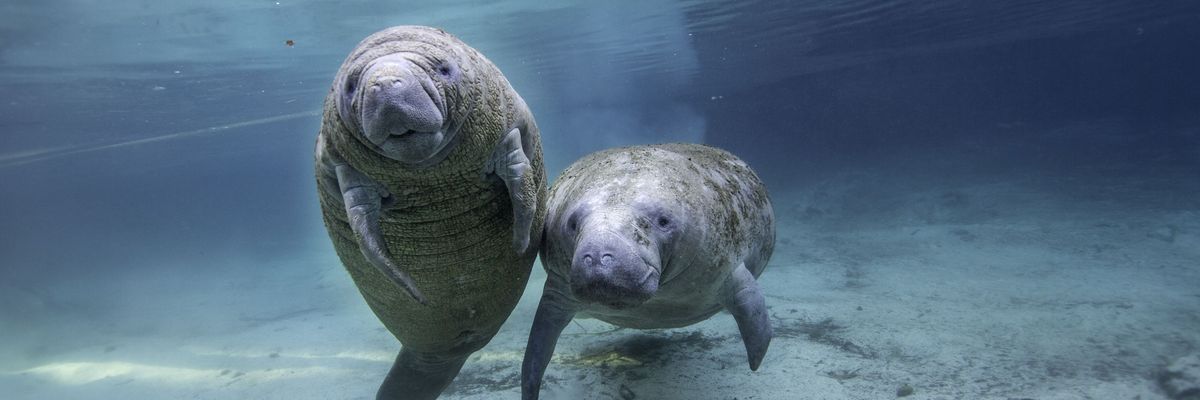Environmentalists are sounding the alarm about a slate of new proposals from the Trump administration to weaken the Endangered Species Act, which they say will put more imperiled species in danger to line the pockets of the wealthy.
On Wednesday, the Department of the Interior's Fish and Wildlife Service (FWS) announced that it would once again roll back several key provisions of the ESA. Many had been in place for decades before they were slashed during President Donald Trump's first term. They were then restored under former President Joe Biden.
"These revisions end years of legal confusion and regulatory overreach, delivering certainty to states, tribes, landowners, and businesses while ensuring conservation efforts remain grounded in sound science and common sense," said Interior Secretary Doug Burgum, a billionaire ally of the fossil fuel industry.
But some of the nation's leading environmental groups say the proposals will allow the government to flout science and approve new projects that will destroy the habitats of vulnerable creatures and accelerate the already worsening extinction crisis.
“The ESA is one of the world’s most powerful laws for conservation and is responsible for keeping 99% of listed species from extinction,” said Jane Davenport, senior attorney at Defenders of Wildlife.
The group said the changes "could accelerate the extinction crisis we face today." According to a 2023 investigation by the Montana Free Press, the ESA has prevented 291 species from going extinct since it was passed in 1973. At that point, around 40% of all animals and 34% of plants were considered at risk of extinction according to NatureServe, a nonprofit that collects conservation data.
“The ESA is only as effective as the regulations that implement it," Davenport said. “Rolling back these regulations risks reversing the ESA’s historic success and threatens the well-being of plant and animal species that pollinate our crops, generate medicine, keep our waterways clean, and support local economies.”
One of the rules being rolled back requires species to receive "blanket" protections when they are added to the list of threatened species. Instead of those blanket protections—which protect these newly-added species from killing, trapping, and other forms of harm—the FWS will instead create individual designations for each species.
According to Jackson Chiappinelli, a spokesperson for Earthjustice, some of the species that would lose protection under this rule would be the Florida manatee, California spotted owl, greater sage grouse, and monarch butterfly, which it said could remain unprotected for years after being listed.
Another major change would let the government consider "economic impacts" when deciding which habitats are required to be protected. In 1982, Congress modified the ESA to clarify that the secretary of the interior must make decisions "solely on the basis of the best scientific and commercial data available," an amendment specifically intended to prevent economic factors from overawing environmental concerns.
The Interior Department said "the revised framework provides transparency and predictability for landowners and project proponents while maintaining the service’s authority to ensure that exclusions will not result in species extinction."
But Chiappinelli contends that the change would "violate the letter of the law" and warns that "the federal government could decide against protecting an endangered species after considering lost revenue from prohibiting a golf course or hotel development to be built where the species lives."
"If finalized, the rules would bias listing decisions with unreliable economic analyses, obstruct the ability to list new protected species, and make it easier to remove those now on the federal endangered or threatened list," said Ian Brickey, a spokesperson for the Sierra Club.
The proposed rules would also reduce the requirements for other federal agencies to consult with wildlife agencies to determine whether their actions could harm critical habitats. It also eliminates the requirement for agencies to "offset" habitat damage when approving new projects, such as logging or drilling, that harm protected species.
“Without rigorous consultations,” Davenport said, “projects could push species like the northern spotted owl and Cook Inlet beluga whale closer to extinction.”
The new proposals follow several efforts by the Trump administration to weaken protections for endangered species. Earlier this year, it proposed weakening the half-century-old definition of what counts as "harm" to endangered species to exclude habitat destruction.
The Department of Agriculture, meanwhile, has proposed rescinding the 2001 "Roadless Rule," which has shielded nearly 45 million acres of protected national forest from logging, oil and gas drilling, and road construction.
Amid the government shutdown, the administration announced its intent to lay off more than 2,000 Interior Department employees, including 143 from the FWS, though a federal judge blocked those layoffs.
It also attempted to sneak a provision into July's One Big Beautiful Bill Act that would have mandated the sale of millions of acres of public lands, but it was stripped out in the Senate following fierce backlash.
"The Trump administration is stopping at nothing in its quest to put corporate polluters over people, wildlife and the environment," said Loren Blackford, the Sierra Club's executive director. "These regulations attempt to undermine the implementation of one of America’s bedrock environmental laws, and they could seal the fate of animals that, without these protections, would disappear from the Earth."




